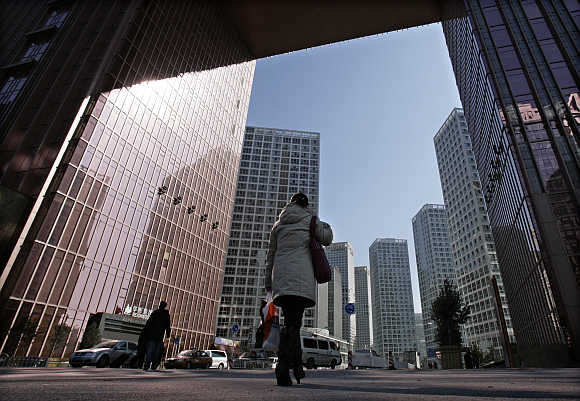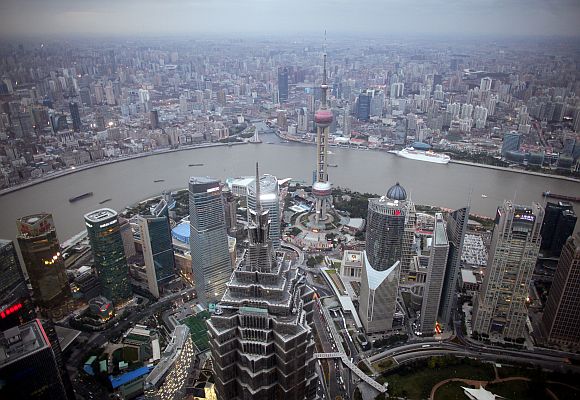 | « Back to article | Print this article |
China will see 7.5 % growth; no need for bailout, says Li
As Chinese economy continued its downward trend, Chinese Premier Li Keqiang expressed confidence that the 7.5 per cent growth target for this year would be achieved without any massive bailout package to halt the slide.
China is capable of achieving its growth target of 7.5 per cent this year without a massive stimulus program similar to the one launched during the 2008-09 global financial crisis, state-run China Daily quoted Li as saying at an economic conference in Beijing on Tuesday.
Click NEXT to read further. . .
China will see 7.5 % growth; no need for bailout, says Li
Li's comments comes in the wake of speculation that the government could come up with a bailout package like the massive $645 billion in 2008-09 to insulate Chinese economy from global financial crisis.
Li pledged to push ahead with economic restructuring while maintaining stable growth.
"We should not shift our policy orientation just because of temporary changes in economic indicators," he said at a meeting with economists and corporate leaders apparently referring China's current economic situation.
Click NEXT to read further. . .
China will see 7.5 % growth; no need for bailout, says Li
As per the latest data, China's economic growth slowed to 7.5 per cent in the second quarter, a far cry from the double digit growth rates posted until two years ago.
It is inevitable to see economic fluctuations, Li said, adding that a major task of macroeconomic control is to avoid sharp fluctuations and keep economic growth within a reasonable range.
"The lower limit is to stabilise economic growth and maintain employment, while the upper limit is to prevent inflation," Li said.
Click NEXT to read further. . .
China will see 7.5 % growth; no need for bailout, says Li
Li said the economy has entered a new stage of development that prioritises restructuring and technological upgrading.
China's Central Economic Work Conference late last year set a goal for inflation this year of 3.5 per cent, with a registered urban unemployment rate of below 4.6 per cent.
"We are confident and capable of accomplishing the tasks given the current conditions," Li said, adding that it will require painstaking efforts.
He said small policy adjustments can be made if growth is considered too slow or sliding toward the government's acceptable limit and there are plenty of options for correction.



